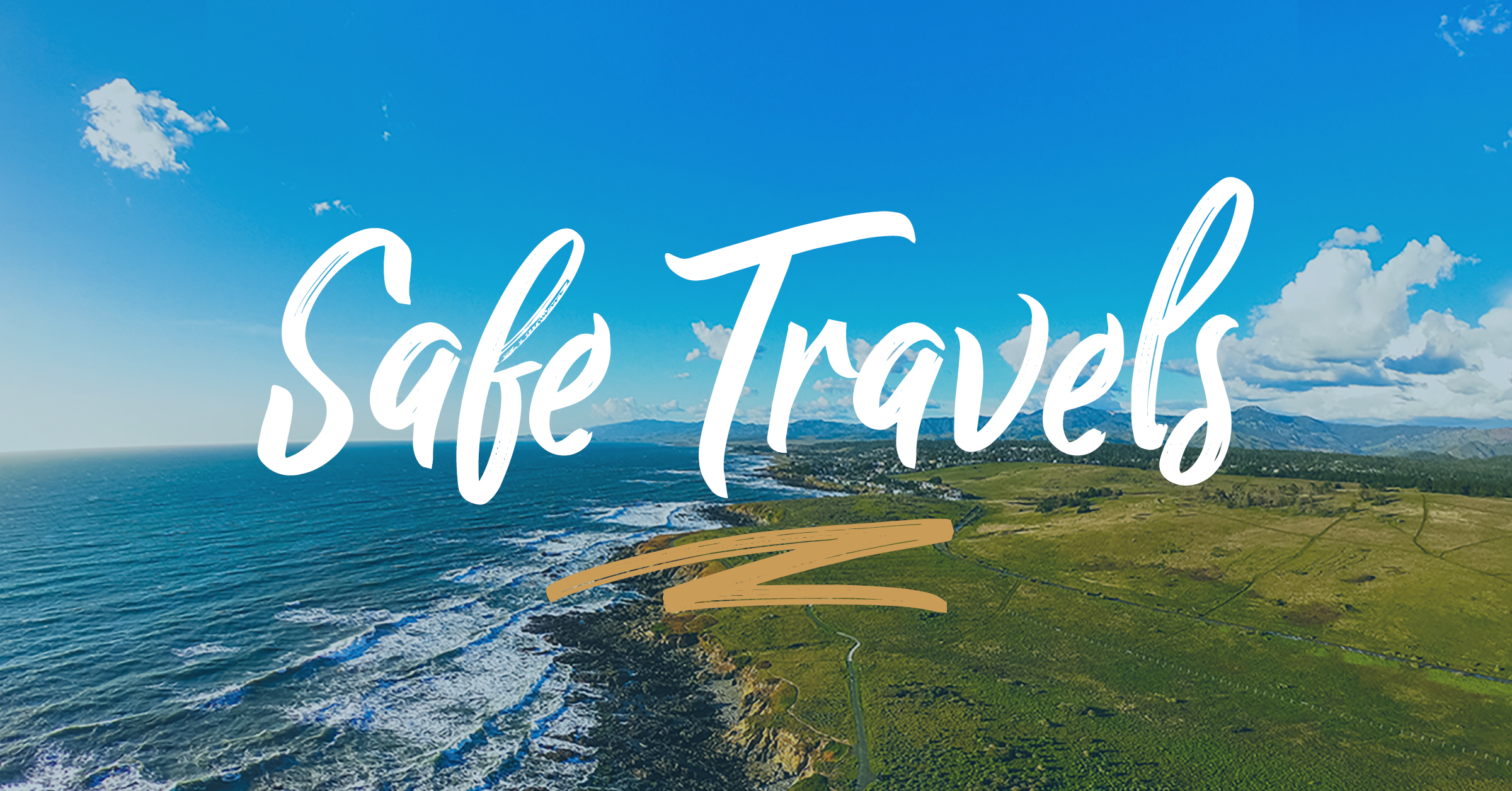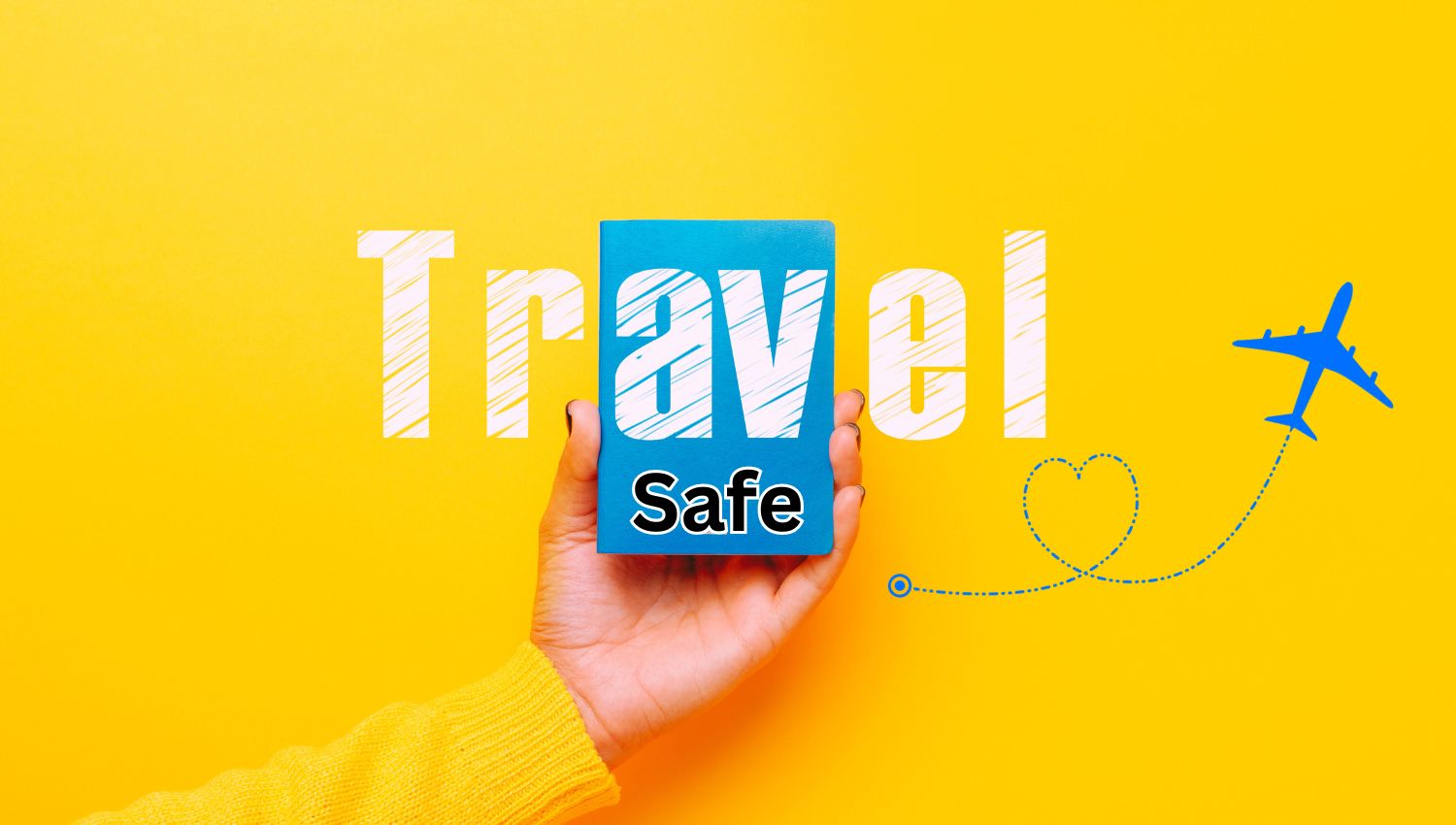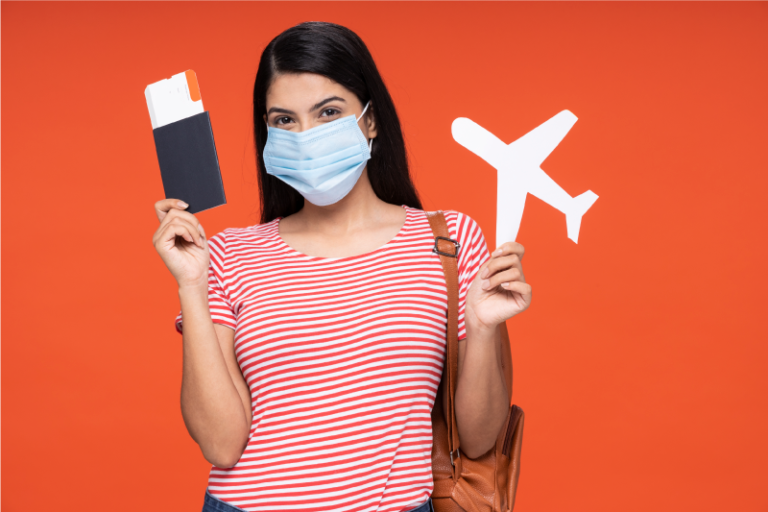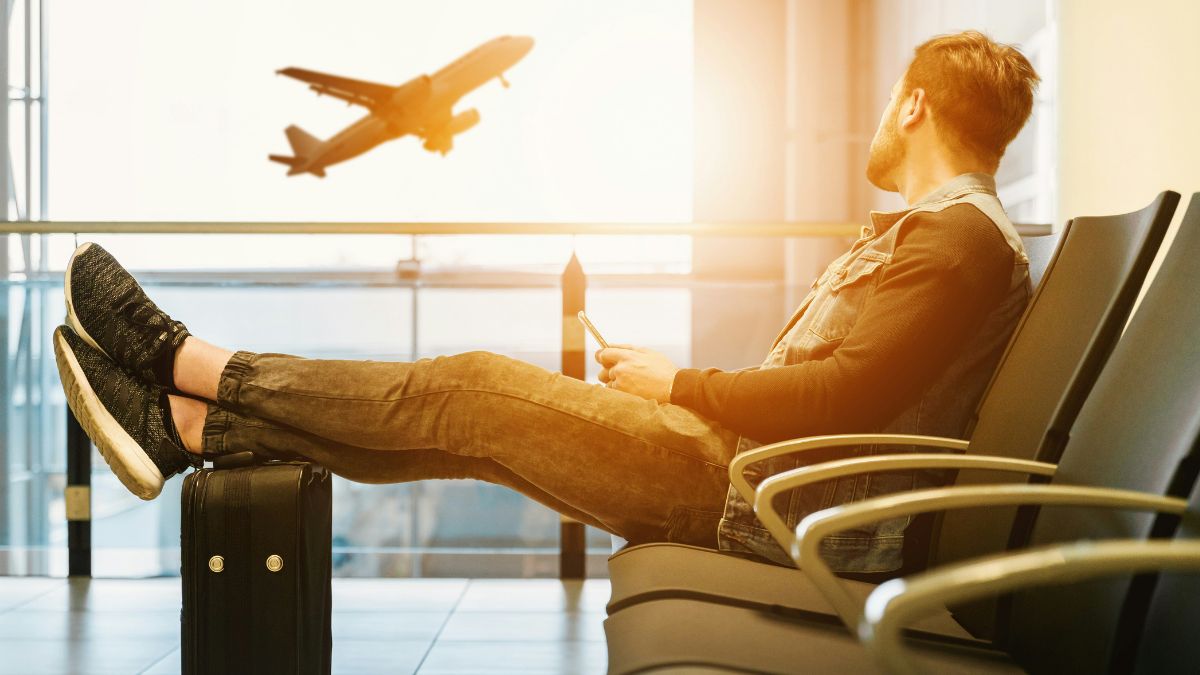Planning for Safe Outbound Journeys

Embarking on an outbound journey requires meticulous planning to ensure a smooth and safe experience. This involves not only booking flights and accommodations but also carefully considering the necessary documentation, insurance, and potential challenges. Proactive preparation can mitigate risks and allow you to fully enjoy your travel adventure.
Thorough preparation is key to a stress-free and enjoyable outbound trip. Understanding visa requirements, securing travel insurance, and anticipating potential delays are vital steps in achieving a successful journey.
Essential Documents for Outbound Travel
Proper documentation is crucial for a seamless travel experience. Having the necessary papers readily available avoids potential delays and complications at airports and border crossings.
- Passport: A valid passport is essential for all outbound journeys. Ensure its validity extends beyond your planned return date, often by several months. Check the specific passport requirements for your destination country, as some may have stricter guidelines than others.
- Visa: Visas are required for many countries. Research visa requirements well in advance of your travel date. The specific requirements vary significantly based on the country and your nationality.
- Travel Tickets: Confirm the details of your flight and other transportation arrangements. Keep copies of your tickets, including e-tickets, in a secure location.
- Accommodation Bookings: Ensure you have confirmed reservations and copies of your hotel or Airbnb bookings.
- Proof of Finances: Some countries may require proof of financial resources, such as bank statements or credit card information, to demonstrate your ability to support yourself during your stay.
- Medical Records: If you have any pre-existing conditions or require specific medications, carry copies of your medical records and prescriptions. It is highly advisable to have your vaccinations updated.
Confirming Travel Insurance Coverage
Travel insurance is a crucial component of any outbound journey, providing financial protection against unforeseen circumstances. Understanding the coverage details is essential for peace of mind.
- Coverage Areas: Review the specific coverage areas offered by the insurance policy. Ensure it covers medical emergencies, lost or stolen belongings, trip cancellations, and baggage delays. Consider options that cover emergency medical evacuation, as this can be very expensive if not covered.
- Policy Details: Carefully review the policy terms and conditions. Understand the exclusions and limitations to avoid surprises. Check for coverage amounts and the procedures for filing claims. Read the policy’s provisions related to trip interruptions and cancellations.
- Claims Process: Understand the process for filing a claim in case of an unforeseen event. Review the contact information for customer support and the necessary documentation required to process the claim.
Checking Visa Requirements
Visa requirements vary significantly between countries. It is crucial to check the specific requirements well in advance.
- Destination Country: Research the visa requirements for the specific destination country you intend to visit. Visa requirements are often country-specific and depend on your nationality. The embassy or consulate of the destination country will have the most up-to-date information.
- Nationality: Your nationality significantly influences the visa requirements. Some countries may have specific visa waivers or agreements with your country of origin, while others may require a visa for all nationalities.
- Purpose of Visit: The purpose of your visit to the country will also influence the visa requirements. Different countries may have different visa categories for tourism, business, or education purposes.
Researching and Comparing Travel Insurance Options
Comparing travel insurance options is crucial to finding the best fit for your outbound trip.
- Comparison Websites: Use online comparison tools to evaluate different policies based on coverage, price, and customer reviews.
- Insurance Providers: Research various insurance providers and compare their policies, considering factors like reputation and claim handling processes.
- Read Reviews: Read reviews from other travelers to get insights into the reliability and responsiveness of different insurance companies.
Potential Travel Delays and Alternative Solutions
Travel delays are inevitable. Planning for potential issues can mitigate their impact.
| Potential Delay | Impact | Alternative Solutions |
|---|---|---|
| Flight Cancellation | Missed connections, rescheduled flights, significant time loss | Contact airline for rebooking, utilize alternative transportation options, adjust itinerary |
| Visa Issues | Delayed departure, potential return trip, travel disruption | Contact embassy, expedite visa application, seek alternative travel arrangements |
| Natural Disasters | Flight cancellations, border closures, travel restrictions | Monitor news reports, contact airline, seek alternative transportation, adjust travel plans |
| Medical Emergencies | Significant medical expenses, potential hospital stay | Contact travel insurance provider, seek local medical assistance, arrange for emergency transport |
Outbound Travel Safety Protocols
Outbound travel, while exciting, demands meticulous planning and adherence to safety protocols. A well-prepared traveler is a safer traveler, and understanding potential risks and proactively mitigating them is crucial for a smooth and worry-free experience. Thorough research and proactive measures before, during, and after your journey are key components of a successful and safe adventure.
Sharing Travel Plans
Sharing your travel plans with trusted contacts is a fundamental safety measure. This involves providing details about your itinerary, including your destination, accommodation, and estimated return date. Designating someone to be aware of your travel arrangements gives them a point of contact if something unexpected arises. This crucial step allows for immediate support and assistance in case of emergencies or unforeseen circumstances. This proactive approach can significantly enhance your personal safety during your outbound trip.
Safety Precautions Before, During, and After Travel
Careful preparation before your outbound trip, combined with vigilant awareness during your journey, and a well-defined post-trip plan, greatly enhances your safety. These precautions should include, but are not limited to:
- Pre-trip: Research the destination thoroughly, understanding local laws, customs, and potential safety concerns. Ensure your passport and necessary travel documents are valid and up-to-date. Inform your bank and credit card companies of your travel dates to prevent potential account freezes or fraud alerts.
- During travel: Stay aware of your surroundings, especially in public areas. Avoid displaying expensive jewelry or electronics. Keep your valuables secure, using hotel safes or secure pockets. Inform your hotel or accommodation of your expected arrival and departure times.
- Post-trip: Report any lost or stolen items immediately to the relevant authorities and your financial institutions. Share your travel experience with loved ones and review your travel insurance policy. Monitor your accounts for any suspicious activity.
Security Measures in Different Destinations
Security measures vary significantly between destinations. Some countries have stricter regulations, and local laws may differ from those you are accustomed to. Understanding the local security environment is vital for safe travel.
- High-risk destinations: These destinations may require heightened vigilance. Research potential risks and adopt extra safety precautions, including carrying emergency contact information and adhering to local advisories.
- Low-risk destinations: While generally safe, it’s still important to exercise caution and be aware of your surroundings. Research local customs and practices to avoid misunderstandings.
Reporting Lost or Stolen Items
Reporting lost or stolen items promptly is crucial. Immediate action prevents fraud and helps authorities recover your belongings. The process often involves contacting local law enforcement and lodging a formal report. Documenting the incident with photographs and receipts is also advisable. Contact your travel insurance provider for any coverage options. Inform your bank and credit card companies about the loss or theft.
Outbound Travel Destination Safety Ratings
A comparative analysis of safety ratings across various destinations is beneficial. While precise ratings are subjective, they offer a general overview.
| Destination | Safety Rating (Example: High, Medium, Low) | Specific Considerations |
|---|---|---|
| Japan | High | Generally safe with low crime rates. |
| Mexico | Medium | Potential for petty crime in tourist areas. |
| South Africa | Medium | Higher risk in certain areas, research is essential. |
Note: Safety ratings are subject to change and vary based on factors like time of year and specific locations within a country.
Outbound Travel Communication Strategies

Staying connected and informed is crucial for a safe and enjoyable outbound journey. Effective communication allows you to navigate unfamiliar situations, stay in touch with loved ones, and quickly access help if needed. This section delves into vital communication strategies for outbound travelers.
Outbound travel often involves crossing time zones and cultural boundaries, making clear communication even more important. Knowing how to contact emergency services, share your itinerary, and stay in touch with family back home are all essential elements of a well-planned trip.
Useful Phrases for Outbound Travel
Knowing basic phrases in the local language can significantly enhance your travel experience. This knowledge builds trust and helps you navigate everyday situations more smoothly. Below are some universally useful phrases:
- Hello/Goodbye: These fundamental greetings are crucial for starting and ending interactions.
- Thank you/You’re welcome: Showing appreciation is a sign of respect and courtesy.
- Excuse me/I’m sorry: Helpful for navigating situations where you need assistance or make a mistake.
- Please/No problem: Politeness is appreciated in many cultures.
- I don’t understand/I don’t speak [language]: Useful when you encounter a language barrier.
- Where is the [location]? How do I get to [location]? Essential for getting around.
- Emergency/Help: These are critical phrases for seeking assistance in urgent situations.
Contacting Local Emergency Services
Knowing how to contact local emergency services is paramount. This allows for quick assistance in case of an accident, medical emergency, or other unforeseen circumstances. Always note the emergency number for the country you are visiting.
- Research emergency numbers before departure.
- Memorize or write down the emergency number.
- Carry a list of emergency contacts with you, including local emergency numbers.
Staying Connected with Family and Friends
Maintaining contact with loved ones is essential for peace of mind. It provides reassurance and allows for sharing experiences. Here are ways to stay connected:
- Pre-trip Communication: Inform family and friends about your itinerary, including dates, locations, and contact information.
- Real-time Updates: Share updates using messaging apps, email, or social media. Regular updates build trust and assure loved ones you’re safe.
- Designated Contact Person: Share your itinerary with a trusted contact back home who can be notified if you’re unreachable or require assistance.
Using Mobile Data Effectively and Economically, Safe travels outbound
Mobile data is essential for staying connected and accessing information during your journey. Using data efficiently can help save money.
- Data Plans: Check data plan options before your trip to ensure you’re not paying extra for roaming charges.
- Wi-Fi Hotspots: Utilize free Wi-Fi hotspots in cafes, airports, or hotels to save on mobile data costs.
- Messaging Apps: Utilize messaging apps for communication; they are often cheaper than SMS or phone calls.
- Offline Maps: Download maps of the areas you’ll be visiting to avoid high data usage when searching for locations.
Using Social Media Safely
Social media can be a valuable tool for sharing travel experiences, but safety is paramount.
- Privacy Settings: Adjust social media privacy settings to control who can see your posts and location.
- Location Sharing: Use location sharing cautiously, and only with trusted individuals.
- Avoid Posting Sensitive Information: Do not post details about your itinerary, financial information, or personal safety concerns on social media.
- Be Aware of Scams: Be vigilant about social media scams that target travelers.
Outbound Travel Health and Wellness
Embarking on an outbound journey is an exciting adventure, but it’s crucial to prioritize your health and well-being. Proper preparation can significantly reduce the risk of unexpected health issues and ensure a smoother, more enjoyable trip. This section focuses on essential aspects of health and wellness for outbound travelers, from common ailments to preventive measures.
Staying healthy during travel involves a proactive approach. By understanding potential health challenges and taking preventive steps, you can maximize your enjoyment of the destination and minimize disruptions to your itinerary. This includes mindful choices regarding diet, hydration, and personal hygiene, alongside crucial preparations such as vaccinations and necessary medications.
Common Health Issues Faced by Travelers
Understanding potential health issues is paramount for proactive preparation. Travelers frequently encounter issues like jet lag, digestive problems, and minor infections. These can be mitigated with careful planning and adherence to healthy habits.
- Jet Lag: Disruptions to your body’s natural circadian rhythm due to rapid time zone changes. Strategies to minimize jet lag include adjusting your sleep schedule gradually before departure and maintaining a consistent sleep-wake cycle during travel.
- Foodborne Illnesses: Consuming contaminated food or water can lead to gastrointestinal issues. Practicing meticulous food safety and hygiene, such as avoiding raw or undercooked foods, is crucial.
- Minor Infections: Exposure to unfamiliar environments can increase the risk of minor infections. Maintaining good hand hygiene and utilizing hand sanitizers can help prevent the spread of illnesses.
- Dehydration: The climate in your destination and travel activities can lead to dehydration. Carrying a reusable water bottle and drinking plenty of fluids throughout the journey can help maintain hydration.
- Motion Sickness: Travel by air, sea, or land can induce motion sickness. Taking preventive medications, like anti-nausea drugs, and adopting relaxation techniques may help alleviate symptoms.
Staying Healthy During Travel
Maintaining a healthy lifestyle is crucial for preventing illness and maximizing energy levels during travel. Consistent habits contribute to a smoother experience.
- Maintaining a Healthy Diet: Choose nutritious foods when possible, prioritizing fruits, vegetables, and lean proteins. Limit processed foods, sugary drinks, and excessive alcohol consumption. Consider the local cuisine, but be mindful of potential dietary restrictions or allergies.
- Staying Hydrated: Dehydration is a significant concern, especially in hot climates or during prolonged travel. Carrying a reusable water bottle and drinking water frequently are crucial. Avoid sugary drinks and alcohol, as these can contribute to dehydration.
- Prioritizing Sleep: Getting enough sleep is essential for maintaining physical and mental well-being. Establish a regular sleep schedule, even during travel, to minimize the impact of jet lag.
- Practicing Good Hygiene: Maintaining good hand hygiene, especially after using public restrooms or touching surfaces, is critical for preventing the spread of illness. Carry hand sanitizer.
Vaccinations and Medications
Vaccinations and medications play a vital role in protecting your health during outbound travel. Consult with your doctor well in advance to determine the necessary vaccinations and medications for your specific destination and itinerary.
- Importance of Vaccinations: Certain vaccinations may be required or recommended for your destination. Check with your doctor to determine if any vaccinations are necessary. Consider pre-departure vaccinations to ensure your body has adequate time to develop immunity.
- Essential Medications: Some medications may be essential for managing existing health conditions or preventing specific illnesses. Pack a sufficient supply of any prescription medications and inform yourself about local healthcare options.
Preparing a Personal Health Kit
A well-prepared health kit can be invaluable during outbound travel. It should contain essential medications, first-aid supplies, and any personal health items.
- Essential Medications: Include any prescription medications, over-the-counter pain relievers, allergy medications, and any personal medications you regularly use. Always carry a copy of your prescriptions.
- First-Aid Supplies: Bandages, antiseptic wipes, pain relievers, motion sickness medication, and any other necessary first-aid items should be included.
- Personal Items: Items such as contact lenses, eye drops, and other personal items should be packed for your convenience.
Maintaining Physical Well-being
Staying physically active and maintaining a healthy lifestyle can improve your overall well-being during travel. Regular exercise, even short walks, and mindful movement can help combat travel fatigue and maintain your energy levels.
Outbound Travel Emergencies and Contingencies

Outbound travel, while exciting, can sometimes involve unforeseen circumstances. Having a plan for emergencies and contingencies is crucial for maintaining safety and peace of mind. This section details steps to take in various emergency situations, empowering you to navigate challenges effectively.
Contacting Local Embassies or Consulates
Maintaining contact information for the nearest embassy or consulate is paramount. Their assistance can be invaluable during emergencies. Keep their contact details readily accessible, either on your phone or in a physical document. Embassies can provide crucial support, including facilitating communication with family back home, offering legal assistance, and even arranging transportation if necessary. They often have personnel familiar with local laws and procedures. Be prepared to provide detailed information about your situation to the embassy staff.
Responding to Natural Disasters or Unexpected Events
Natural disasters and unforeseen events can disrupt travel plans. A well-prepared approach is key to navigating these situations. Knowing the local emergency protocols and evacuation routes in your destination country can significantly enhance your safety. Familiarize yourself with local news sources and alert systems to stay updated on any developing events. Having a backup plan for alternative accommodations or transportation is advisable. For example, knowing the locations of shelters or safe zones can be crucial in a disaster.
Finding Emergency Medical Services
Accessing emergency medical services in a foreign country is essential. Local emergency numbers are vital, and should be noted and memorized. Understanding the local healthcare system and potential language barriers is also important. Carry your insurance information and any necessary medical documentation with you. Researching local hospitals and clinics ahead of time can provide insight into their services and procedures. Knowing the closest hospitals or clinics to your planned location can be beneficial in case of emergency.
Locating the Nearest Police Station
Knowing the location of the nearest police station is essential for reporting incidents or seeking assistance. It is a good practice to memorize the address and/or have the location saved on your phone. This knowledge can be invaluable in case of theft, lost belongings, or other urgent situations. Having this information readily available can expedite the process of reporting and resolving issues. Understanding local procedures for reporting incidents can also prove beneficial.
Ensuring Secure Access to Banking Services
Maintaining secure access to your banking services during travel is vital. Inform your bank of your travel plans to avoid any issues with unauthorized transactions. Consider using a travel-specific debit card or credit card, if available, to ensure quick and convenient access to funds. Have multiple ways of contacting your bank in case of emergency, such as having a dedicated phone number or email address for travel emergencies. In the event of a lost or stolen card, knowing the procedure for reporting it promptly is important.
Outbound Travel Resources and Support: Safe Travels Outbound

Planning an outbound trip can feel overwhelming, but arming yourself with the right resources makes the journey smoother. Knowing where to find reliable information and support is key to avoiding hiccups and ensuring a positive experience. From online tools to local guides, this section will equip you with the necessary knowledge to navigate your outbound adventure with confidence.
Understanding the available resources can alleviate stress and potential problems. A well-informed traveler is a better prepared traveler, and that preparation directly translates to a more enjoyable and less problematic experience. By knowing how to access and utilize these resources, you’ll be able to tackle any challenge that arises during your journey.
Locating and Utilizing Online Travel Resources
Online resources are invaluable for outbound travel planning. Websites like Expedia, Kayak, and Skyscanner allow comparison shopping for flights, hotels, and rental cars. These tools are indispensable for finding the best deals and options that suit your budget and preferences. Using these platforms efficiently will help you identify the most suitable choices for your travel itinerary.
Helpful Travel Apps and Tools
Numerous apps provide practical support for outbound journeys. Currency converters are essential for understanding costs in foreign locales. Translation apps facilitate communication with locals. Navigation apps like Google Maps and Waze offer real-time directions and local information, allowing you to navigate unfamiliar territories. These tools can save you time, money, and reduce stress, making your journey more efficient and enjoyable.
Importance of Travel Guides or Local Information
Travel guides and local information provide insights into local customs, regulations, and potential hazards. Books, magazines, and online resources often offer valuable cultural insights, historical context, and safety tips for your destination. Understanding local norms, traditions, and safety precautions helps you integrate into the local environment. This will contribute to a more meaningful and enriching experience.
Contacting Travel Agents or Tour Operators
Travel agents and tour operators are valuable resources for outbound travel support. They can assist with visa applications, booking accommodations, and organizing transportation. They often possess in-depth knowledge of their destinations and can provide personalized advice, tailored to your specific needs and preferences. This can streamline the travel process, ensuring a smooth transition from planning to execution.
Resources for Travelers Facing Issues
This table provides resources for travelers facing various issues during outbound trips:
| Issue | Potential Resources |
|---|---|
| Lost Passport/Documents | Embassy/Consulate, Airline Contact, Local Police, Travel Insurance |
| Medical Emergency | Local Hospitals, Travel Insurance, Embassy/Consulate, Emergency Services |
| Financial Issues | Travel Insurance, Banks/Financial Institutions, Local Money Exchange, Embassy/Consulate |
| Safety Concerns | Local Police, Embassy/Consulate, Travel Insurance, Local Guides |
| Cultural Misunderstandings | Local Guides, Travel Guides, Online Resources, Language Translation Apps |
Wishing you safe travels outbound! Getting ready for a new adventure? If you’re a travel nurse looking for a rewarding experience, exploring travel pcu rn jobs might be a great next step. Hopefully, your travels will be filled with new sights, delicious food, and enriching experiences, all while supporting your career goals. Safe travels!
Planning a trip? Safe travels outbound are crucial, and a solid travel insurance policy is a smart move. For peace of mind, consider ripcord rescue travel insurance – they cover a wide range of emergencies, from medical evacuations to lost luggage, ensuring you’re well-prepared for any hiccup. So, get ready for smooth sailing and fantastic adventures, knowing you’re protected.